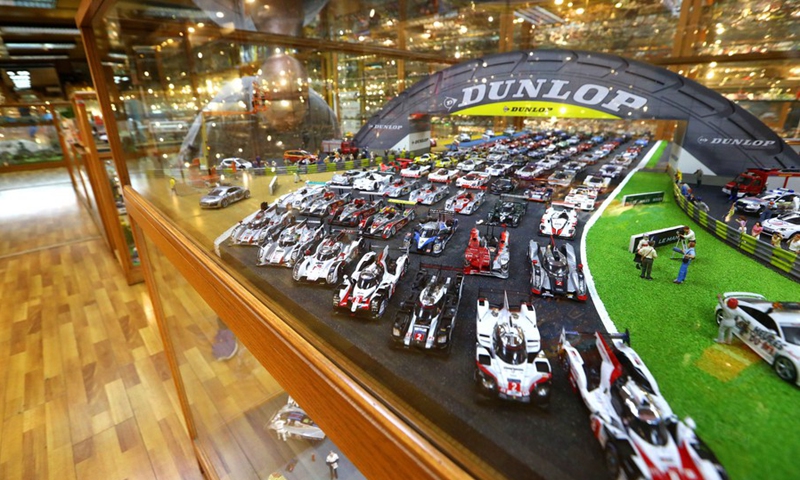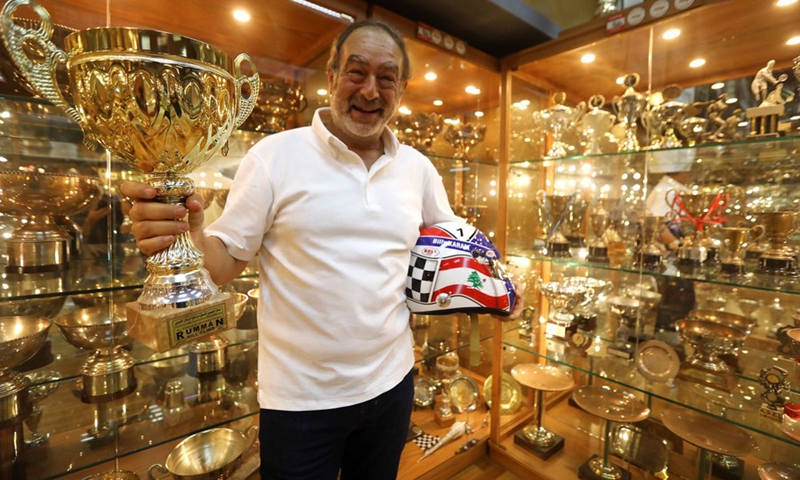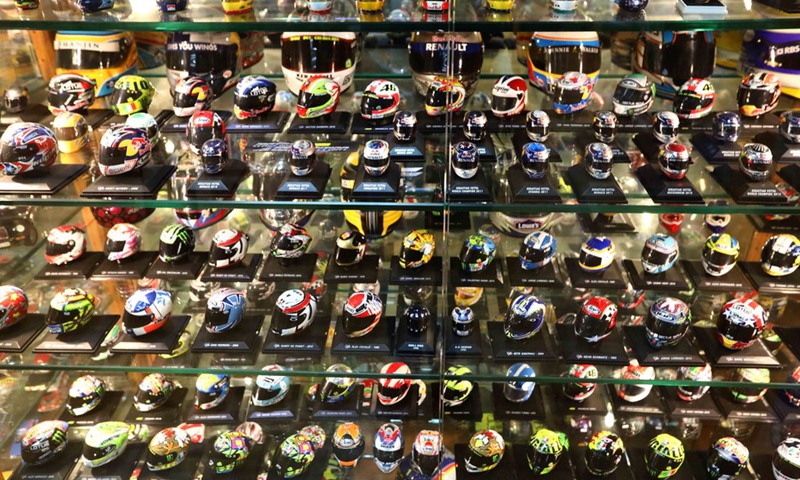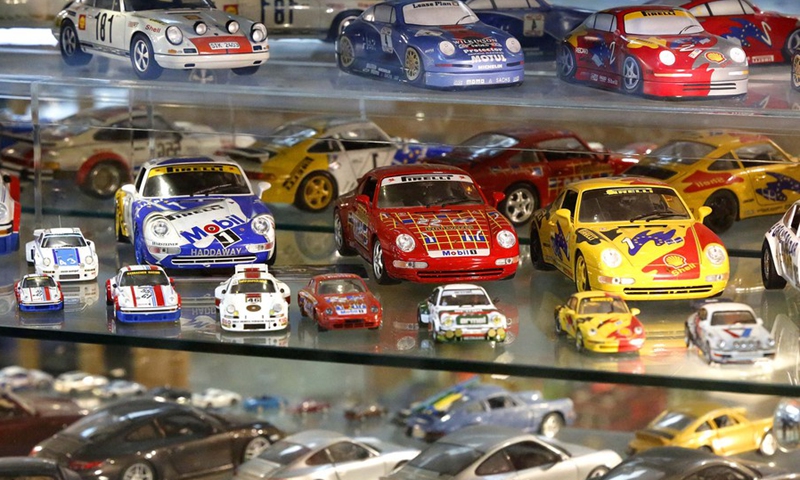
Model cars are displayed in Billy Karam Museum in Zouk Mosbeh, Lebanon, on Sept. 12, 2022.(Photo: Xinhua)

Nabil Karam shows the trophies he won in car races at Billy Karam Museum in Zouk Mosbeh, Lebanon, on Sept. 12, 2022. (Photo: Xinhua)

Helmets are displayed in Billy Karam Museum in Zouk Mosbeh, Lebanon, on Sept. 12, 2022.(Photo: Xinhua)

Model cars are displayed in Billy Karam Museum in Zouk Mosbeh, Lebanon, on Sept. 12, 2022.(Photo: Xinhua)
Lebanese race car champion Nabil Karam started his hobby of collecting mini sports cars 30 years ago. Today, the 65-year-old man has collected around 50,000 car miniatures from around the world.
Nabil, better known by his nickname Billy, showcases his collection at the Billy Karam Museum for mini cars in Lebanon, which has become a destination for tourists after it entered the Guinness Book of Records three times, the latest being in 2016.
Furthermore, his largest stamp collection featuring automobiles and the biggest collection of dioramas gained him another three Guinness World Records in 2011, 2016, and 2018.
On Monday, Lebanon's Tourism Ministry announced to list of the museum as an important landmark on the country's tourism and sports map.
"It all started as a hobby," Billy told Xinhua that first, he collected mini cars and models inside his house, but since the place could not take any more cars, he decided to allocate a room in his wood workshop for the cars, which expanded gradually into a museum.
Extending over 1,500 square meters with two floors, the museum displays thousands of mini sports and classic cars, and civil and military models.
"Besides, I also have a collection of more than 700 Diorama models I made myself," he added.
Furthermore, the museum also hosts the Formula One car, which belongs to the Red Bull team and gained the title of World Champion four years ago while driven by the German racer Sabastian Vettel and the Spanish racer Carlos Seinz.
Billy turned his passion for cars into a successful racing career by winning Lebanon's championship eight consecutive times in rallies and speed races.
"I participated in every race I've heard of, which left multiple fractures on me," he added.
Billy's past injuries encouraged him to use the museum as a message for young people that it's important to respect road safety rules and take measures to reduce car accidents in Lebanon.
"I receive visitors from schools and universities, and we discuss road safety measures and the importance of using seat belts," said Billy, who is also vice president of the Automobile and Touring Club of Lebanon (ATCL).
Billy says he aims to continue collecting cars for the rest of his life, hoping his museum will keep on attracting tourists worldwide.
"It is like a 'virus' that never stops. Every time I see a beautiful car, I want to have it, and I'd go all over the world to buy these small treasures," he said.
Billy explains that his plan to keep the museum stems solely from his passion for cars with no aim for making any profits.
"Entrance to my museum is for free; it is important to encourage tourism in Lebanon as it is the main source of income for the country," he said.
Lebanese Tourism Minister Walid Nassar announced earlier this year that Lebanon's tourism sector generated around 4.5 billion U.S. dollars in revenues this summer by receiving over 1.5 million tourists.
